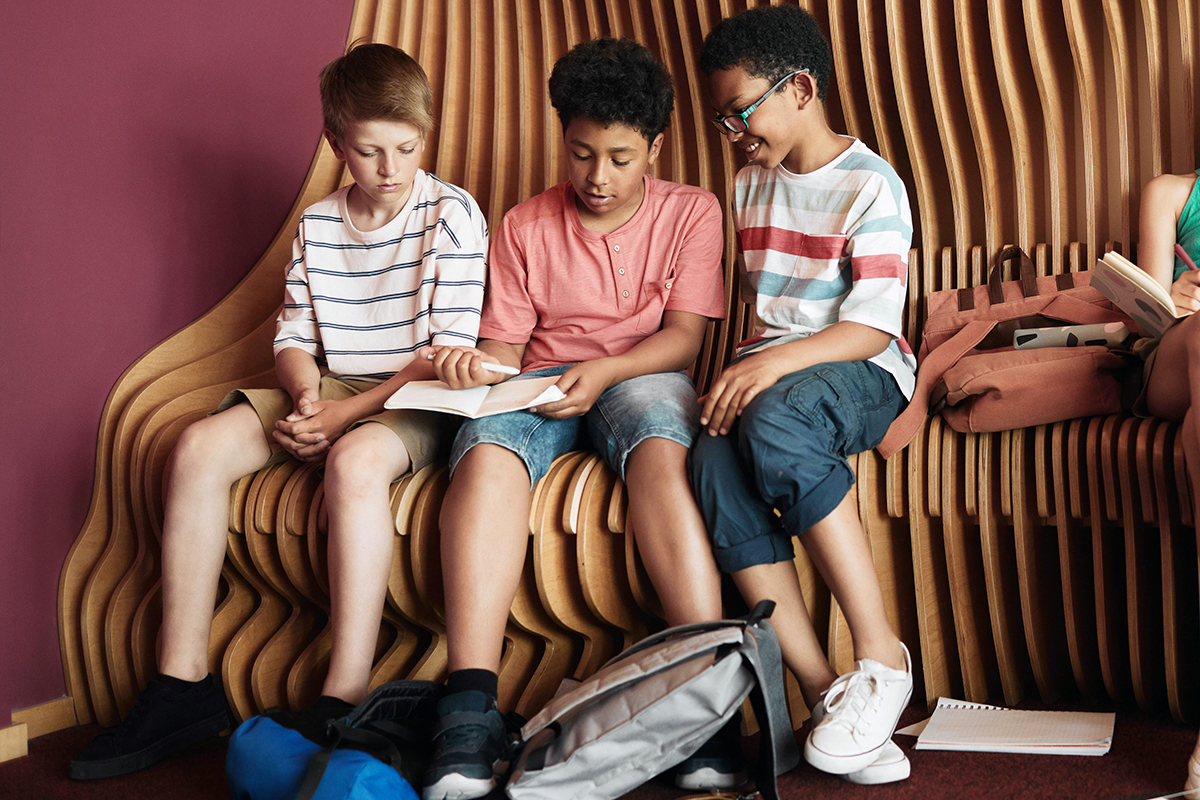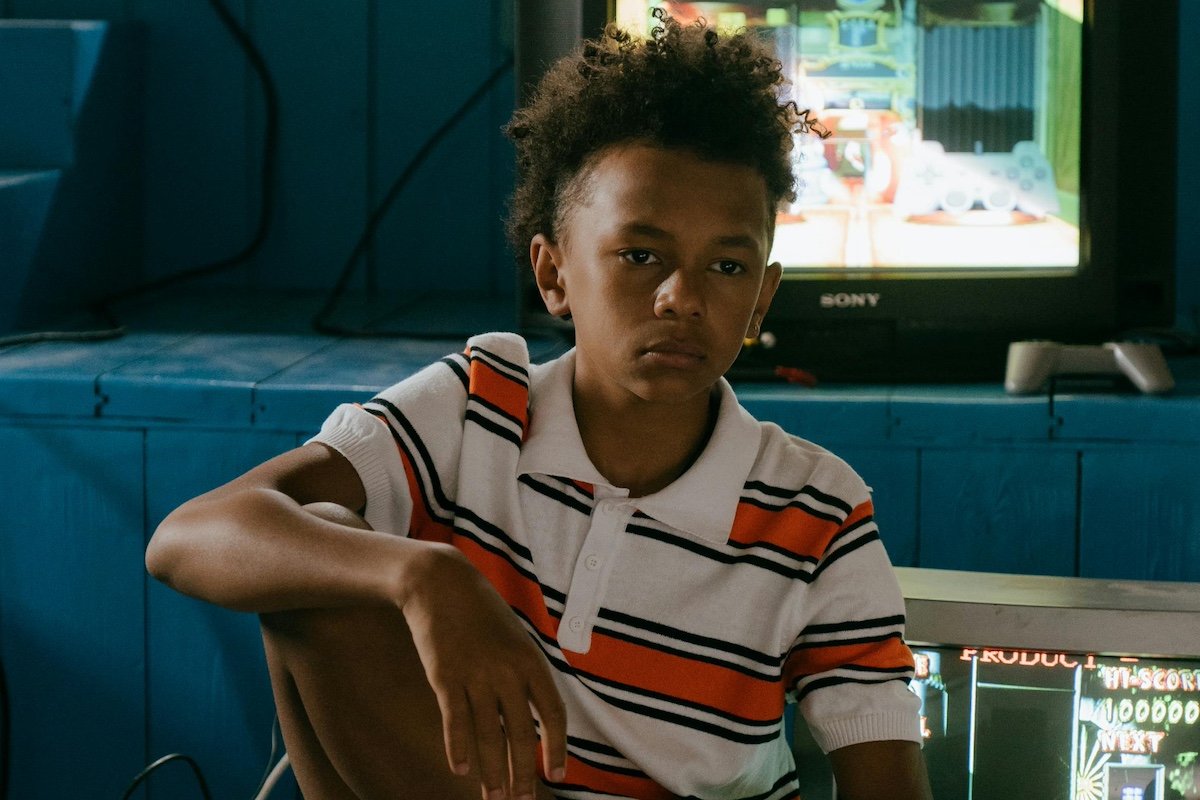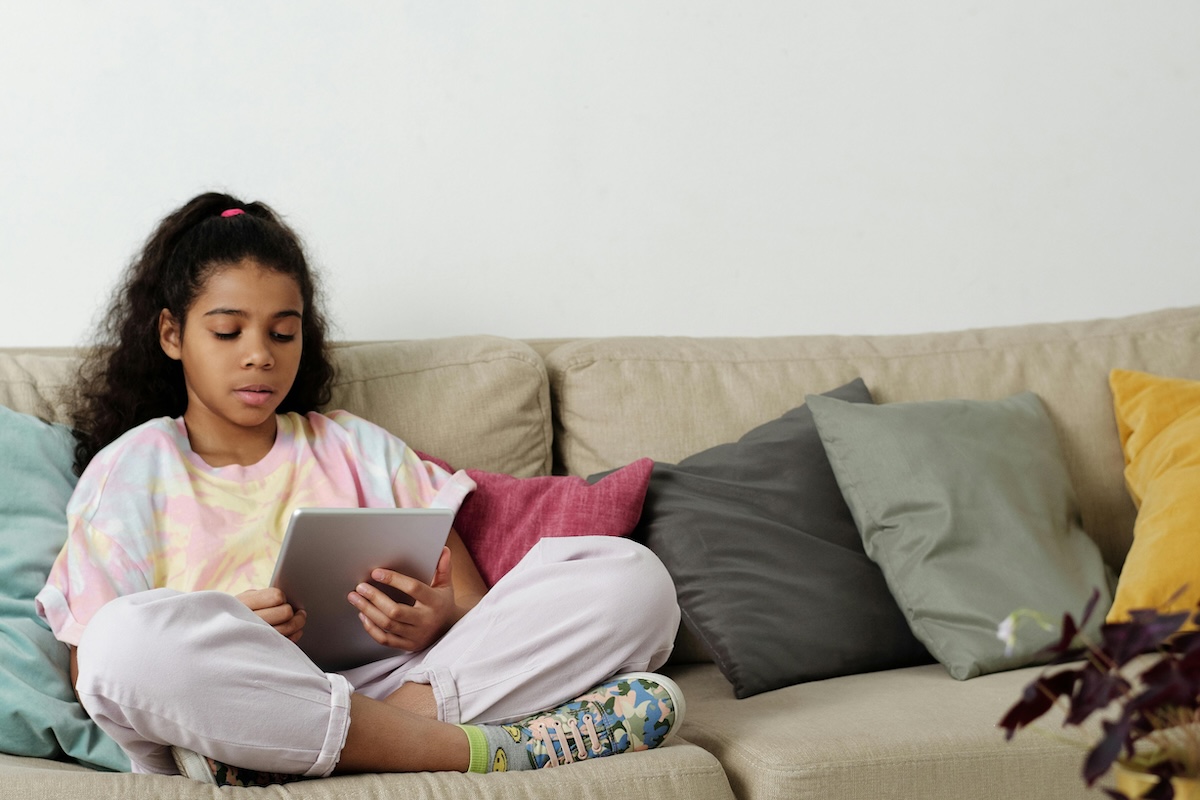We’ve been hearing a lot about the teen mental health crisis — and there is no question that on a number of metrics, teens do seem to be struggling more than they have in the past. But I also know parents have wondered, Is it really that bad? Is there a chance we’re overreacting to normal teenage feelings?
My guest today, Dr. Mathilde Ross, is a psychiatrist at Boston University, and her view is, yes, sometimes we are. More pointedly: she thinks sometimes parents are the problem. We’re so afraid of what might be happening to our kids, we cannot let them go. We talk today about what she’s seeing in college kids, why many of them are doing fine, and how parents can embrace some independence, in both their 17-year-old and their 7-year-old.
Here are three highlights from the conversation:
What do parents need to know about the teen mental health crisis?
There’s a sense of: mental health for kids is declining, it’s the lowest it’s ever been. Your article doesn’t take that frame, or at least I think isn’t quite the same level of concern. I’d love you to talk a little bit about that discourse and how that feels to you from where you sit with the students.
To give people who haven’t read this a flavor of the article, this is the part of it where I laugh the most: “But I do have some advice for parents. The first thing I’d like to say, and I mean it in the kindest way possible, is get a grip.” That’s a little bit of the tone of the article.
Are we sending our kids to therapy too frequently?
If you go to therapy for some issue, and you go to therapy for several weeks and then you feel better and the issue is resolved, what you learn from that is “Wow, my therapist really helped me.” If you take the same issue and, say, go to your mom or go to maybe your good friend, a very similar thing is going to happen. You’re going to get through it. Most people get through most things, but in the process, what you’re going to learn from that is “I can get through anything with my friends” or “I can get through anything with my mom,” as opposed to “Gosh, therapy was really necessary for me.”
The emphasis of the article, to me, what people might be missing is, what do we lose? What do I lose by outsourcing this aspect of my child’s development to a professional instead of just being there?
What advice do you have for parents of younger kids?
As early as possible, you need to let them make their own decisions to the degree that they can. I’m going to tell you a story. You’re probably going to be horrified, and definitely your listeners will be. When my daughter was 2, she was rather stubborn. There was a 20-degree day, we were going for a hayride or something; it was an outdoor activity. She wanted to go. She did not want to put a coat on. It’s like, “Okay, I can bring the coat, you can wear it or not, it’s your body.”
We went on the hayride, I carried the coat, 40 minutes this girl did not ask for her coat. It was murder. I was like, “Oh my god, she’s got to be cold.” Other parents are looking at me. “What’s going on?” I held my tongue, didn’t say anything. [After] 40 minutes, “I think I’ll put my coat on now.” “Great, put your coat on.” The urge to protect them is not only socialized, it’s literally hardwired — evolution built us to take care of these people. Sometimes it goes against what is natural or what feels like the right thing. I think for a whole lot of people, it’s just easier to protect them than to let them be cold for 40 minutes on a hayride.
But what is harder to put in your head is like, “Look, this is… If my kid doesn’t learn how to make a mistake and how you then get back from your mistake and put on the coat, that’s bad for them in the future.” Making choices that aren’t the best and then having to make them again is how they’re going to learn to not make the bad mistakes later.
Full transcript
This transcript was automatically generated and may contain small errors.
There’s a lot of horror stories in the media today about teenagers’ mental health, the teenage mental health crisis, as it’s been called.
In this conversation, we talk about this perspective that some of these reports about teen mental health crisis are overblown. We talk about the idea that for many kids, they’re actually doing okay and what they need is for parents to step back a little to allow their kids the independence they need to solve their own problems, to make some of their own mistakes, either in college or ideally before. We talk about what happens if we don’t give them that space. We talk about one concern, which is that kids have a hard time solving their own problems if we’re always solving them for them.
We also talk about the worry that people who have really serious mental health crises actually have a hard time reaching clinicians when those clinicians are treating kids who really don’t need that treatment to the same extent. I think this conversation will make people think about some of the ways that we parent younger kids, about some of the ways that we might parent older kids and about as a society, how we might approach the resiliency of kids recognizing that they need space. Sometimes they need help, but they also need to be alone, and maybe sometimes it is us who need to get a grip after the break. My conversation with Dr. Tildy Ross.
Dr. Tildy Ross, thank you so much for joining me.
They’d probably have all kinds of really interesting information about what is likely to happen today. I would still end up with the same decision, raincoat or no, but I would feel like it was a much more informed decision and I would’ve had probably an awesome conversation with a really smart professional in the process. Great, that was a good experience. What if I start telling all my friends to do that and they’re like, “This is awesome. It takes so much pressure off the decision of whether to wear a raincoat and I’m getting all this extra information too.” What happens if they tell all their friends about it? All of a sudden the National Weather Service is flooded, they’re getting more calls than they can handle. At first they’re like, “This is great. Usually everyone ignores us. Now everyone wants to know what our opinion is and great.”
Here’s the problem, Logan Airport is also calling. They really want to know if that nor’easter is coming. No one at the National Weather Service can answer the phone for Logan Airport. Sometimes, maybe even a lot of the time, that’s okay because most of the time that nor’easter isn’t coming, but it’s a disaster if a nor’easter is coming. It’s not just the National Weather Service, it’s farmers, they got to know when to plant stuff. The Navy, they got to know when their ships need to be in harbor, and then there’s a Chinese spy balloon. The State Department wants to know which way it’s going to blow, which way is the wind blowing. The National Weather Service has really important stuff to do, and they can’t do it if hundreds and thousands of people are calling to ask whether to wear a raincoat.
That is what it’s been like to be a mental health clinician over the last decade or so. You have important calls coming and a lot of them, but you have orders of magnitude more calls coming that are things that are, sure, important in the moment, but probably self-limiting and going to get better on their own or maybe dealt with better in a different way with a friend or with a family member.
If you take the same issue and say, go to your mom or go to maybe your good friend, a very similar thing is going to happen. You’re going to get through it. Most people get through most things, but in the process, what you’re going to learn from that is, “I can get through anything with my friends,” or “I can get through anything with my mom,” as opposed to, “Gosh, therapy was really necessary for me.” The emphasis of the article. To me, what people might be missing is like, what do we lose? What do I lose by outsourcing this aspect of my child’s development to a professional instead of just being there?
It’s like a bunch of twelve-year-olds in a cabin. The supervision is some sixteen-year-old who is just trying to deal with their own emotional relationship with the sixteen-year-old in the boys’ cabin, they got their own stuff going on. They’re not scaffolding your relationships. It was not what I expected her to get out of it, the idea that there are some things that you can fix on your own with your peers or with your parents without something external. It does teach you that that’s possible. That is part of becoming a person.
As early as possible, you need to let them make their own decisions to the degree that they can. I’m going to tell you a story. You’re probably going to be horrified and definitely your listeners will be. When my daughter was two, she was rather stubborn. There was a 20 degree day, we were going for a hayride or something. It was an outdoor activity. She wanted to go. She did not want to put a coat on. It’s like, “Okay, I can bring the coat, you can wear it or not, it’s your body.”
We went on the hayride, I carried the coat, 40 minutes this girl did not ask for her coat. It was murder. I was like, “Oh my God, she’s got to be cold.” Other parents are looking at me. “What’s going on?” I held my tongue, didn’t say anything. 40 minutes, “I think I’ll put my coat on now.” “Great, put your coat on.” The urge to protect them is not only socialized, it’s literally hardwired evolution built us to take care of these people. Sometimes it goes against what is natural or what feels like the right thing. I think for a whole lot of people, it’s just easier to protect them than to let them be cold for 40 minutes on a hayride.
But what is harder to put in your head is like, “Look, this is… If my kid doesn’t learn how to make and what it is to make a mistake and how you then get back from your mistake and put on the coat that’s bad for them in the future.” That making those mistakes… Maybe she wouldn’t say it was a mistake, but making those mistakes or making choices that aren’t the best and then having to make them again, how they’re going to learn to not make the bad mistakes later.
As a parent, you are always front of mind for your child, always. It doesn’t always feel that way because they’re ignoring you, but you are. When something very good or when something very bad happens, I guarantee you are the first thing they think of. Evidence for that, whenever anyone is caught on camera unexpected, what is the first thing they say? “Hi, mom.” Right? You are always front of mind. They’re not forgetting about you at home in Providence or wherever. Let them come to you, follow their lead on how much communication they want with you. But yeah, if they’re not getting up for class, they may get some grades that they don’t like, but that’s them. It’s not you.
If your entire self-worth is tied up in the activity and the community around the activity, and then all of a sudden you have to change gears, that is very, very hard for young people. I think that this is a way that parents could actually be paying more attention. I think there’s a lot of things parents should be paying less attention to, but I think that is an area where parents could be paying more attention. That is general advice for anyone. I am a psychiatrist, so I see the most serious mental health problems that people see. I have got plenty to keep me up at night, but for the most part, it ties to the more serious stuff that I mentioned earlier. Childhood trauma, particularly early childhood trauma. Poverty, you would not think it would be so big an issue in a private university, but you would not believe the tentacles that poverty has. There are plenty of other side notes. If your kid’s going to live off campus, make sure their smoke detectors work, we’ll just leave that one at that.
Maybe I’m wrong. That would be possible. Here’s what I think. There is a lot of emotion around phones. 100% of people have emotions. Only a smaller percentage of people are going to be vulnerable to serious mental health problems. Right now, one of the things that’s going on with this over-diagnosis and the stuff I was talking about earlier with people seeking care for very minor things, one of the things that you have going on is a massive confusion between normal emotions and serious mental health problems. People are just quite confused. Now, that everything’s destigmatized, it’s sort of shifted. There used to be a significant amount of mental health stigma. If you weren’t sure, you’d be like, “That’s probably normal.” Now, since things have been are much more willing to call something that is normal, a mental health problem. I should also say, by the way, I’m not a child psychiatrist.
I see them when they turn 18. I don’t know how this is playing out in child psychiatry offices, and I’m happy to acknowledge that. The other thing that I would like to say is there is an absence of strong data. When there is an absence of strong data, what you get is strong feelings, and there are definitely a lot of strong feelings on this topic. Here’s what I think. Okay, so there’s a saying in medicine that goes, “The absence of evidence isn’t the evidence of absence.” That basically means it’s really hard to prove a negative.
Let’s say you wanted to find out if eating glitter is dangerous. It’s actually hard to find evidence on that. Is eating glitter dangerous? I don’t know. There’s no evidence. But the absence of evidence isn’t evidence of absence. It might be dangerous to eat glitter, probably just don’t do it. It sounds dumb. How does this apply to cell phones and weak data? It’s been almost 20 years. Over a 20-year timeframe, the absence of evidence is evidence of absence. That is my opinion. I think it is a lot of talk. I think it is a major distraction from real issues. The real issues in mental health are poverty and trauma, things that you are hard-pressed to find a newspaper talking about. That’s why talking about phones makes me insane.
If you can’t subscribe to appropriate limits like all people do, maybe you’re just not ready. I do think people are going to be ready at different ages. I also know, because as an adult, I’ve lived through all of this, and I also know that every single adult that I know who got a phone when they first had it, went through a phase where they were super annoying. Even the grandparents who you would think would just have boundaries around it when they first got their phone, “Oh yeah, we’re having an important Thanksgiving conversation. But look, cat videos.” I feel like every individual had a learning curve with their phone. Of course, young people are going to, and there are a lot of emotions wrapped up in it. Then the social side is tricky, but teenagers and the social side has always been tricky.
There are a lot of ways you can help people find out about us. Leave a rating or a review on Apple Podcasts. Text your friend about something you learned from this episode. Debate your mother-in-law about the merits of something parents do now that is totally different from what she did. Post a story to your Instagram debunking a panic headline of your own. Just remember to mention the podcast too, right, Penelope?
Community Guidelines



















Log in